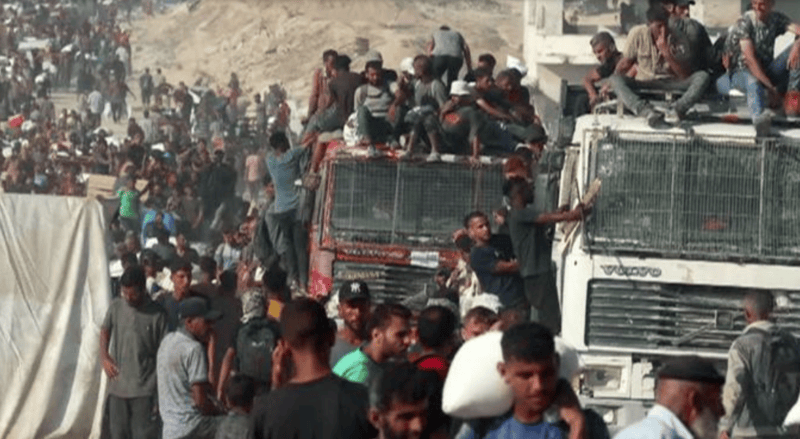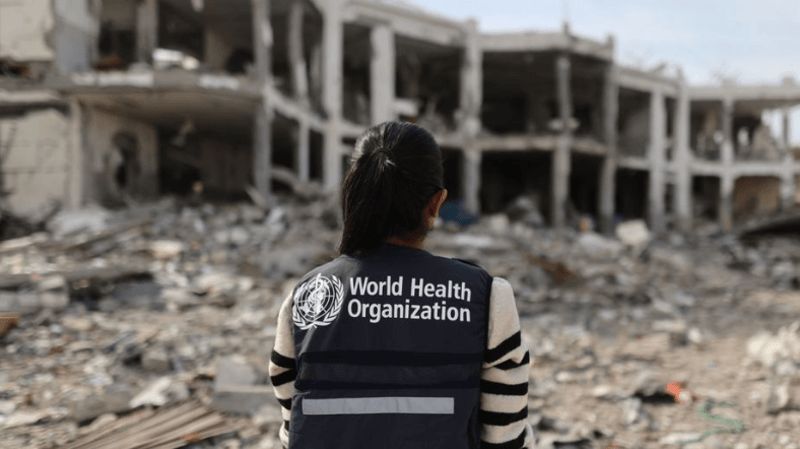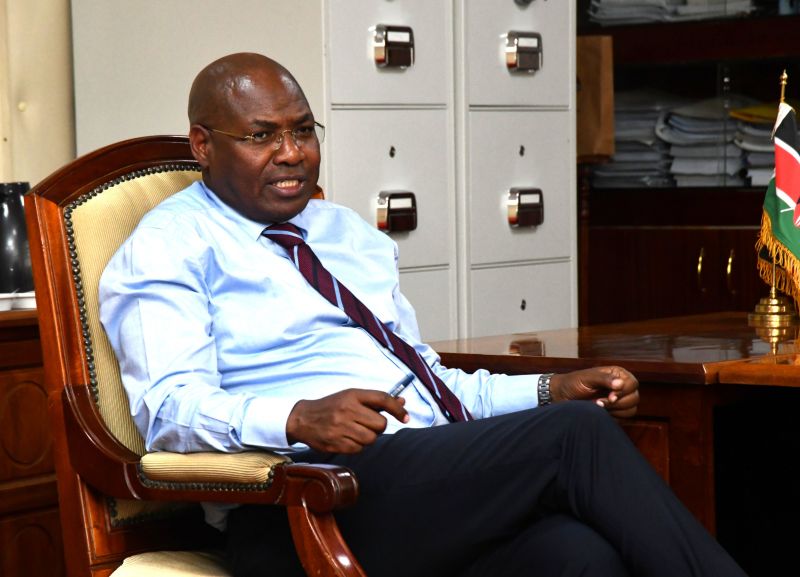A father, a witness: Gaza journalist documents war while living its daily horror

Thousands have died and much of Gaza has been laid to waste, but life must continue, according to the correspondent, who is remaining anonymous for security reasons.
The daily struggle to survive an ongoing war in Gaza and to protect one’s family, while reporting on the fear and chaos that conflict brings, has become an unrelenting obligation for a UN News correspondent in the embattled enclave.
Some 21 months have passed since the October 7 attacks on Israel, which sparked the current brutal conflict.
More To Read
- Staggering Gaza casualties amid ongoing ceasefire breaches
- Palestinian police to be trained in Egypt as Gaza rebuilds security forces
- Israeli drone attack kills two Palestinian boys in Gaza
- Aid access and hospital operations remain constrained in Gaza
- New study estimates Gaza war death toll may exceed 100,000
- UN says rebuilding Gaza will cost Sh 9.1 trillion as Palestinian economy nears collapse
Thousands have died and much of Gaza has been laid to waste, but life must continue, according to the correspondent, who is remaining anonymous for security reasons.
“Those who live here in Gaza don’t need long explanations to understand the meaning of this war.
It is enough to listen for a few minutes: Planes buzz incessantly overhead, and airstrikes silence everything except fear which, although invisible, fills every space between our tents and seeps into our bodies.
We sleep knowing that waking up is not guaranteed.
Every morning in Gaza is a new attempt to live, and every evening a challenge to survive. This is the harsh reality we live in.
I am one of more than two million Palestinians living under the burden of displacement. I document stories of war and despair while experiencing their full bitterness.
Since our home was destroyed in November 2023, the tent has become our safety. My family, once part of my private world, is now part of the stories I share with the world.
Here, life is simple and tragic.
Sleeping on the hard ground, cooking over firewood and the exhausting pursuit of a morsel of bread are no longer options, but a way of life imposed by the cruelty of war.
In the face of my eldest son, who is not yet 14, I see a reflection of a war that has stolen his childhood and imposed burdens on him greater than his years.
He has become an expert at water distribution routes, haggling for bread and carrying heavy gallons of water. I feel boundless pride in his courage, yet simultaneously a painful sense of powerlessness because I can’t protect him from what’s happening around us.
 A WHO worker assesses a destroyed hospital in northern Gaza. (WHO)
A WHO worker assesses a destroyed hospital in northern Gaza. (WHO)
Oasis of hope
My wife is trying to create an oasis of hope for our other children. My two eldest daughters continue to learn online when the internet is intermittently working and to read whatever books are available.
My youngest daughter draws on worn pieces of cardboard while my youngest son, who is four, has no memory of anything other than the sound of explosions.
We stand helpless in the face of his innocent questions. There are no schools, no education, only desperate attempts to keep the brightness of childhood alive in them, in the face of a brutal reality.
More than 625,000 children in Gaza have been deprived of an education.
This is due to the destruction of schools and the lack of a safe environment in which to learn.
The future of an entire generation is threatened.
I work alongside other journalists. We wander between hospitals, streets and shelters.
We carry our journalistic equipment not only to document events, but also to be a voice for those whose voices have been silenced.
We film a child suffering from severe malnutrition, listen to the story of a man who has lost everything and witness the tears of a woman unable to provide food for her children.
We document a scene which is repeated daily: Thousands of people rush to reach a flour truck. They run after the trucks, collecting the last grains of flour from the ground.
They don’t care about danger, as the hope of getting their hands on a loaf of bread is more precious than life.
Each time, casualties fall along the convoys’ routes and militarised distribution points.
We walk the streets, alert to every sound, as if we’re waiting for the end with every turn we make.
There’s no longer time for surprises or sadness, only constant tension and anxiety that has become part of the survivors’ DNA here.
This is the reality that cameras don’t capture, but it is the daily truth we try to explain to the world.
Tears of UN colleagues
We document the efforts of the United Nations and its various organisations.
I see staff sleeping in their cars to be closer to the crossings, and I see our UN colleagues crying as they listen to the stories of my fellow Gazans.
There is not enough aid. The crossings open and close abruptly, and some areas are deprived of supplies for days.
The western areas of Gaza City are overcrowded. Tents are spread out on every corner, on the sidewalks and among the rubble of destroyed homes, in dire conditions.
Empty markets
The value of the local currency has evaporated. Those with money in their bank accounts pay fees of up to 50 per cent to withdraw it, only to find themselves facing nearly empty markets. Whatever is available is being sold at exorbitant prices.
Vegetables are scarce, and when available, a kilogramme can cost more than $30. Fruit and meat are a distant memory.
The health system is in a state of complete collapse as 85 per cent of Gaza’s hospitals are no longer functioning, and most dialysis and chemotherapy services have stopped.
Medications for chronic diseases are unavailable. I am unable to secure medicine for my parents, who suffer from diabetes and high blood pressure, and there is no hope of surgery, which could save my brother’s arm, which was injured in an airstrike.
Witness to everything
Sometimes, I feel caught between two identities: the journalist documenting the suffering and the human experiencing it.
But, perhaps this is where the strength of our journalistic mission from the Gaza Strip lies: to be a voice from the heart of the tragedy, to convey to the world the reality of what is happening on a daily basis.
Every day in Gaza poses a new question: Will we survive? Will our children return from their search for water? Will the war end? Will the crossings be opened so aid can be delivered?
From here, we will continue, because untold stories die and because every child, woman and man in Gaza deserves to have their voice heard.
I am a journalist. I am a father. I am displaced. And I am a witness to everything."
Top Stories Today















































